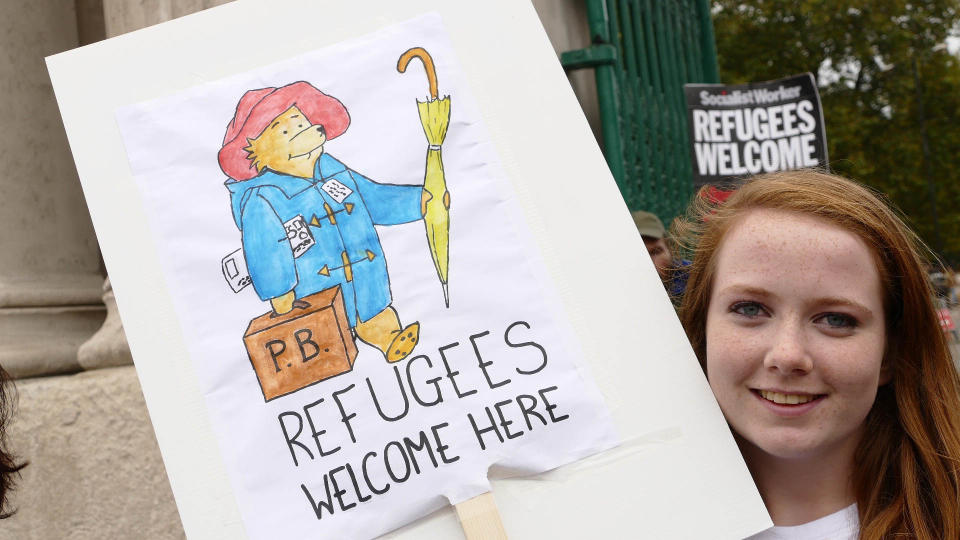UK now among top five European countries for asylum claims

The UK became the fifth most popular destination in Europe for people seeking asylum last year despite a substantial fall in applications, a new report shows.
The European Asylum Support Office’s annual report confirms the number of people seeking safe haven in Europe are continuing to fall after the 2016 refugee crisis.
Across the whole of the EU, there was a huge 44% drop in the number of asylum applications.
“These figures very clearly reflect the fact that the measures we have introduced are working,” said a European Commission spokeswoman. “We’re better able to manage our migratory flows.”
The overall trend was replicated in the UK, where there has been a 15% fall in applications.
The UK received 39,735 applications in 2016. That fell to 33,780 last year.

The highest share of UK applications came from citizens of Iraq, where 3 million people were displaced during a three year fight to recapture territory from Islamic State terrorists.
Despite that, the UK went from sixth to the fifth when it came to application numbers across the EU.
That’s because Austria, which had been fifth in 2016, has recorded a 42% fall this year.
The country’s populist government imposed a cap on the number of asylum claims that can be made in the country each day – a move which the EU says breaches international law.
The UK remains well behind Greece, Italy, France and Germany in the number of asylum applications received.
Despite seeing a 70% reduction on the number of application last year, Germany still receive almost seven times more than the UK.
And the figures were published amid a row over migration policy in the country.
Merkel has done more than any other European leader to help refugees fleeing wars in the Middle East. More than 1.6m refugees have arrived in the country since 2016.
There has been a backlash against the policy and it is now threatening the stability of Merkel’s coalition government just three months after it was formed.
German Interior Minister Horst Seehofer, a member of the Bavarian sister party of Merkel’s CDU, has threatened to unilaterally impose curbs on migration.
Donald Trump has waded into the row, writing on Twitter that a “big mistake” has been made by European leaders over migration.
The people of Germany are turning against their leadership as migration is rocking the already tenuous Berlin coalition. Crime in Germany is way up. Big mistake made all over Europe in allowing millions of people in who have so strongly and violently changed their culture!
— Donald J. Trump (@realDonaldTrump) June 18, 2018
But he’s at odds with his own wife, Melania Trump, over his hardline approach to migration which sees families trying to enter the US illegally on the Mexico border broken up.
A spokeswoman for the first lady said she “hates to see children separated from their families.”
In Germany, Seerhofer has agreed a compromise with Merkel today that will see her seek an EU-wide solution at the European Council summit at the end of the month.
Seehofer’s hard line stance is seen as a bid to shore-up support for his conservative CSU party ahead of regional elections in October, when they will face a challenge from the stridently anti-immigration Alternative for Germany party.

 Yahoo Finance
Yahoo Finance 